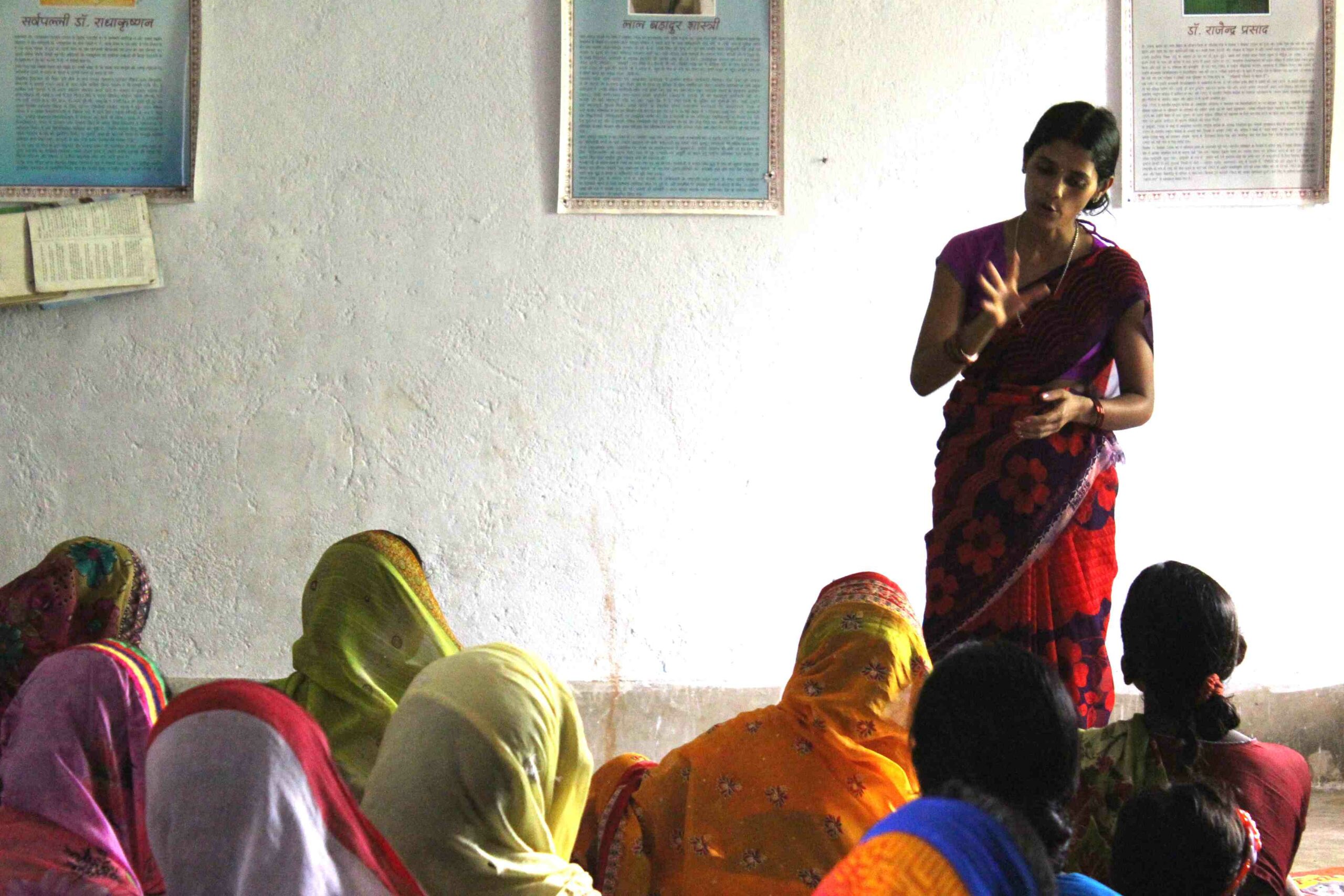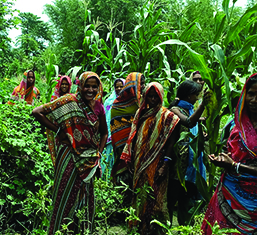Contributed by: Joshin K Jose, Assistant Program Manager, Digital Green – Jharkhand
Rinki Devi married into a family in Besradih, one of the most remote villages of Bundu block, Ranchi district, Jharkhand. Her husband’s family was very poor and survived on a meager income from a small land holding that the family owns. “It was very difficult for my family, especially when the crops failed due to poor rainfall and other environmental causes,” she shares.

Rinki Devi with her indomitable spirit wanted to do something to change the fortunes of her new family but didn’t know what she could do. Her family was too poor and very conservative. She was, however, very proactive and popular among her peers in the village. When self-help groups (SHGs) were formed in her village, she lost no time in becoming an active member of the group.
In the year 2014 Jharkhand State Livelihood Society (JSLPS) adopted Rinki Devi’s village to initiate the livelihood program. Knowing her to be proactive and outgoing, she was unanimously selected as the Ajeevika Krishak Mitra (AKM) for her village. However, it was a huge challenge for her to convince her family about her work.
Since her family was unhappy about her going out of her home and to other fields as an AKM, it became all the more challenging for Rinki Devi to introduce new practices such as Systematic Rice Intensification (SRI) within her own family. They ridiculed her learning. But she was determined to convince them. She thought it important to convince her own family first before convincing the others in the village.
Her persistence finally paid off and her husband agreed to adopt SRI. Rinki Devi used this opportunity to mobilize others to see the benefits and adopt the practice. I underwent a lot of anxiety throughout the crop cycle but when my family saw the tillers growing thick, the smiles of acceptance on their faces was my great reward, shared Rinki Devi. After the harvest my family was fully convinced that I was doing a good job and other farmers also started believing me. As a result now 80-90 families have adopted the SRI practice and other practices suggested by me, she adds with pride.

As an appreciation for her hard work JSLPS promoted her as Senior AKM. Now she supervises 8-9 AKMs in her cluster. She regularly undergoes and upgrades her knowledge on various agricultural practices and transfers them to the farmers. In the last two years she has not only worked as AKM but also helped her husband with a loan taken from the SHG she is a part of, to start a pathology lab. She says the family who ridiculed her now values her suggestions and consults her on important decisions to be taken in the family. She says with great confidence that, I’m popular in the village and people consult me on various issues.
Since Digital Green started introducing its approach in the area, Rinki Devi has been one of the best mediators in the block. She has been disseminating videos not only in her own village, but she carries the hand-held, battery-operated projector wherever she goes and disseminates the videos among farmers. She has disseminated videos showcasing agricultural best practices in six villages so far. Videos are a very effective medium for knowledge transfer, she says.


